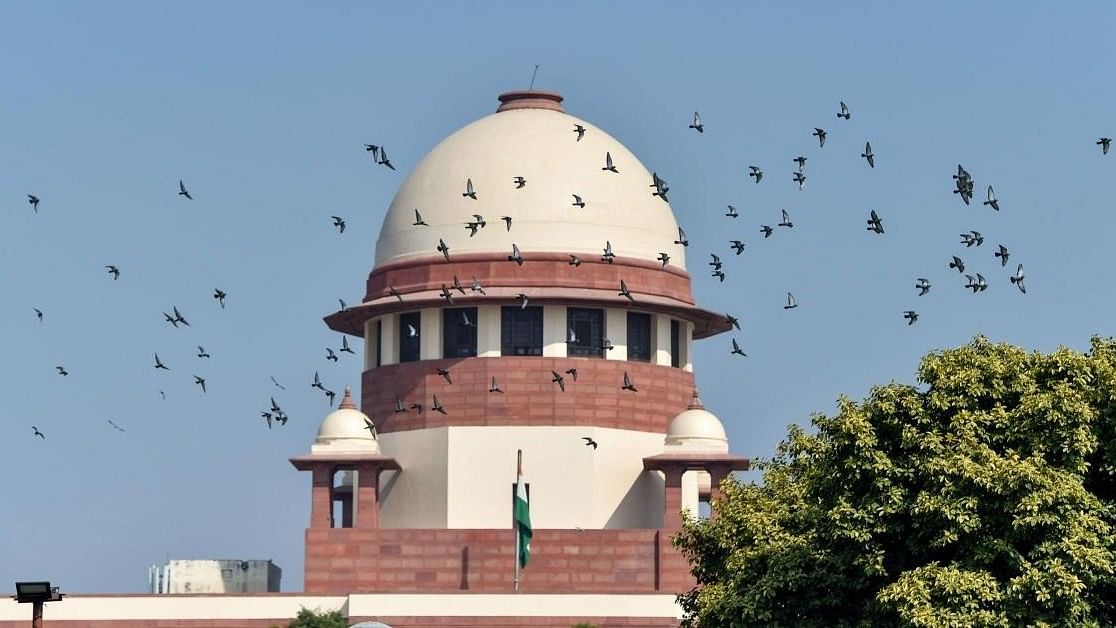
The Supreme Court.
Credit: PTI Photo
New Delhi: The Supreme Court on Friday granted bail to noted activist Prof Shoma Sen, arrested in 2018 in the Bhima Koregaon case, for offences under the stringent Unlawful Activities (Prevention) Act after finding that charges levelled against her were found as prima facie not true at this stage.
A bench of Justices Aniruddha Bose and Augustine George Masih said the petitioner was 66-year-old, and suffered from various ailments so the court would not apply the rigors of Section 43D (5) of the 1967 Act against her, besides, there was no evidence that she was a member of the banned terrorist organisation CPI (Maoist).
The court said there is no reasonable ground for believing that the accusations against the appellant for commission of the offences incorporated in Chapter IV and VI of the 1967 Act are prima facie true.
The bench emphasised that any form of deprival of liberty results in breach of Article 21 of the Constitution and must be justified on the ground of being reasonable, following a just and fair procedure and such deprival must be proportionate in the facts of a given case.
These would be the overarching principles which the law courts would have to apply while testing prosecution’s plea of pre-trial detention, both at investigation and post-charge sheet stage, it said.
"Taking cognizance of the composite effect of delay in framing charge, period of detention undergone by her, the nature of allegations against her vis-à-vis the materials available before this court at this stage in addition to her age and medical condition, we do not think she ought to be denied the privilege of being enlarged on bail pending further process subsequent to issue of charge sheets against her in the subject-case," the bench said.
The court, however, directed Sen not to leave Maharashtra without permission from the Special Court. It also directed her to surrender passport, inform the investigating officer of her address, keep only one mobile phone, keep it active and charged, switch on its GPS location and report to SHO of jurisdictional police station every fortnight as conditions for bail.
The apex court rejected preliminary objections made by Additional Solicitor General K M Nataraj on behalf of the NIA against entertaining Sen's plea challenging the Bombay High Court's order of January 17, 2023, asking her to approach the Special Court for bail.
"We must not lose sight of the fact that we are concerned here with the question of liberty of a pre-trial detenue," the bench said.
Sen, former professor for English af Nagpur University, was arrested on June 06, 2018, along with several other prominent activists in the case.
Nataraj said the prosecution at present would not require her custody but contested her plea due to gravity and seriousness of the offences. He submitted that the question of entitlement of the appellant to be enlarged on bail would have to be examined in the light of the bail restricting clause of Section 43D (5) of the 1967 Act.
The bench, however, said, "If we examine the acts attributed to the appellant by various witnesses or as inferred from the evidence, we do not find prima facie commission or attempt to commit any terrorist act by the appellant."
On the allegations of raising funds for a terrorist act, the bench said most of the materials have emanated from recovery of documents from devices of third parties.
"At this stage, on the strength of the materials produced before us, the prosecution has not been able to corroborate or even raise a hint of corroboration of the allegation that the appellant has funded any terrorist act or has received any money for that purpose," the bench said.
The bench said it only examined whether the offences under Part IV & VI of the 1967 Act, alleged to have been committed by the appellant, are prima facie true or not, while being conscious of the fact that in course of trial, the prosecution will have the opportunity to bring more detailed evidence.
"As regards the allegation including conspiracy or attempt on her part to commit, advocate, abet, advice, incite or facilitate commission or any terrorist act, the materials collected so far,...only reveal her participation in some meetings and her attempt to encourage women to join the struggle for new democratic revolution. These allegations, prima facie, do not reveal the commission of an offence under Section 18 of the 1967 Act," the bench said.
The court also found no specific materials or statements produced by the prosecution which attributed acts of recruitment in banned organization by the appellant.
The bench also said, "Mere meeting of accused individuals or being connected with them through any medium cannot implicate one in Chapter VI offences under of the 1967 Act, in the absence of any further evidence of being associated with a terrorist organisation. Such association or connection must be in relation to furtherance of terrorist act."
